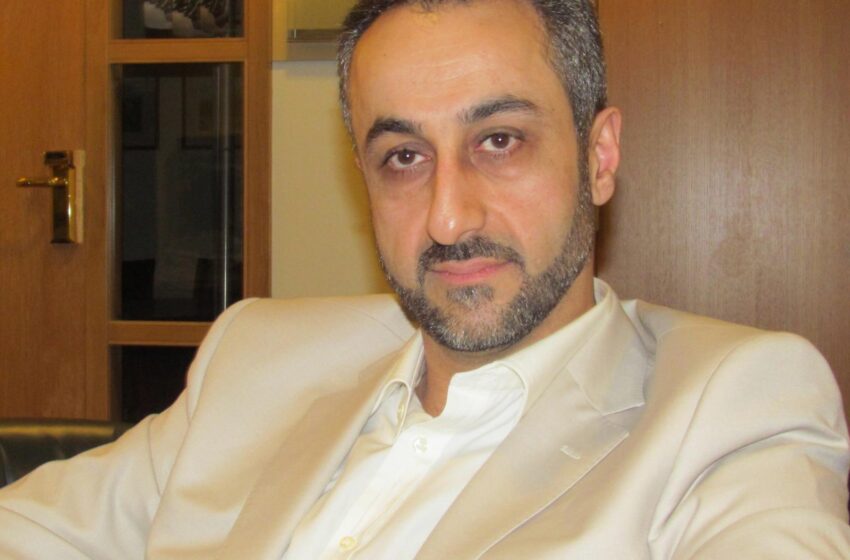Indian State Should Focus on Unconventional Methods: Jamal Nasir Baloch
Hyrbyair Marri Condemns Iran and Pakistan’s Joint Attacks in Balochistan

LONDON: The pro-freedom Baloch leader and the Head of the Free Balochistan Movement, Hyrbyair Marri, in a recent statement, condemned the joint airstrike by Pakistan and Iran on the Pakistani-occupied Balochistan’s Panjgur region, specifically in Sabz Koh. He said that this attack further strengthened our stance that both occupying powers were collaborating to dismantle the united national force of the Baloch people.
These joint strikes were carried out while Iranian Foreign Minister Abbas Araghchi was visiting Islamabad. This clearly demonstrates that Iran and Pakistan are aligned and partners in opposing Baloch freedom.
Marri emphasised that, despite the geographical proximity and religious similarities between the two countries, Iran and Pakistan have never been true allies of the Baloch people. Instead, they secretly collaborate whenever necessary to strike a blow to the Baloch national freedom movement.
The Baloch leader further stated that unfortunately, some among the Baloch people continue to chant slogans of friendship with Iran, while others hope for Pakistani support. However, the recent joint operation carried out by both Iran and Pakistan against the Baloch in Panjgur and Sabz Koh exposes the truth: both occupying powers have united to uproot the Baloch freedom movement.
Marri called on pro-freedom Baloch leaders and activists to view this as a wake-up call. He stated, “If Iran and Pakistan, despite being separate powers, can unite against the Baloch people to protect their mutual interests, why can’t we, as Baloch supporters of independence, unite on the fundamental issue of the freedom of a united Balochistan?”
He further emphasised that if the Baloch people can adopt various political concepts and ideologies—such as secularism, liberalism, and socialism—to fight for their freedom, then they should not allow religious affiliations or political leanings to divide them when it comes to the central cause of achieving the freedom of a united Balochistan and securing national sovereignty.
It is astonishing, he noted, that some hail the Iranian occupying regime as a “saviour” despite its occupation of Baloch land, while Baloch freedom fighters, who resist the Iranian occupation, are rejected in the name of religion. “This is a contradiction,” he said. “The truth is, the armed fighters in Iranian-occupied Balochistan have never explicitly declared their desire for Baloch national freedom, yet they actively fight against the Iranian regime instead of joining the Iranian Parliament and submitting to the Iranian state.”
Marri insisted that, regardless of their religious or political affiliations, Baloch people should accept each other’s views and unite on one central issue: the freedom of a united Balochistan. As long as they do not obstruct the national struggle or fall into religious extremism, Baloch activists should work together for their collective goal of a self-governed, sovereign Balochistan.
The president of the Free Baloch Movement (FBM) also reminded the Baloch nation of Iran’s past actions in 1970, when the Iranian government, fearing the Baloch freedom struggle, provided significant military, economic, and political aid to Pakistan. Together, they launched airstrikes on Baloch independence activists. The joint policy of the occupying powers against Baloch freedom has remained consistent ever since.
Iran and Pakistan, by occupying Balochistan, have consistently worked to divide the Baloch people along religious, political, and social lines. Marri stressed, “It doesn’t matter who is in power in Iran, whether it was the former Reza Shah Pahlavi or the current clerical regime—they all share the same policy of seeking to eliminate the Baloch nation.” Despite differences in politics or religion, both powers are united in their goal of erasing the Baloch people.
Therefore, any Baloch force, divided by artificial borders, that expresses doubts about other Baloch forces plays into the hands of the occupying powers, Iran and Pakistan, and harms the Baloch struggle. Marri declared, “As Baloch, we must see both Iran and Pakistan as occupiers of our land and organise our resistance accordingly.”
Marri concluded by stating that Iran and Pakistan are engaged in a campaign of genocide and national exploitation against the Baloch people. He warned that any hope for aid or goodwill from these occupying powers—believing them to be “liberators”—is an illusion that undermines the Baloch national struggle.
“It is crucial,” he said, “for the Baloch people to focus all their energies on resisting both Iran and Pakistan to secure the freedom of a united Balochistan. Only then can the Baloch nation succeed in defeating the genocidal policies of the occupying powers.”









